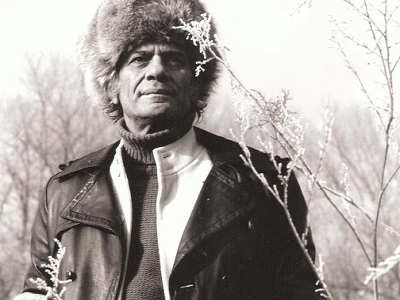Reprinted from Palestine Chronicle

The spirit of Gaza is the spirit of Mu'in Bseiso: beautiful, poetic, tortured, strong, undying, and loving.
(Image by (Photo: File)) Details DMCA
"(At dawn) ... I will resist ... (Since) upon the wall there is still a white sheet ... And my fingers are yet to (completely) dissolve."
This is a translated verse from Mu'in Bseiso "Three Walls of the Torture Chamber." He was -- and remains -- one of Gaza's most influential intellectual and renowned poets.
After Israel occupied the Gaza Strip in 1967, he lived in exile for the rest of his life, hopping from one country to another. Many of Gaza's great intellectuals were exiled as well; others languished in jail or were assassinated.
Bseiso died in some London hotel in 1984. One of his older plays carrying this verse envisaging his death...
"And my tongue was a sword ... But I am now dying ... And my (only) witnesses are these four muted walls."
Every phase of Bseiso's literary work carried clues to the struggle faced by Palestinians throughout their modern history, which he echoed in his poems until his passing. His words spoke of resistance, love, torture chambers and naked walls, children coloring on a beach, exile ... oh, the endless exile.
But Resistance featured prominently in almost everything he wrote.
"If I fall, comrade, in the struggle, take my place,
And gaze at my lips as they halt the madness of the wind.
I have not died ... I am still calling you from beyond my wounds.
Sound your drums, so that the whole people may heed your call and fight ..." (The Battle)
The spirit of Gaza is the spirit of Mu'in Bseiso: beautiful, poetic, tortured, strong, undying, and loving and although confined by ever-shrinking spaces, always resisting.
I am writing this, not only as a nod of gratitude to Gaza's great poet for the way he influenced me and several generations of Palestinian and Arab intellectuals in Gaza and elsewhere, but to denote a fact that seems to escape many of us: Gaza is also an abode of poetry.
Alas, how many of us can name a single Palestinian poet from Gaza? Likely, very few. It is because we are accustomed to affiliating Gaza with death, not life. Poetry is the greatest intellectual affirmation of life because great poets never die. Their verses linger like the roots of an ancient Palestinian olive tree.
This is what Asmaa al-Ghoul, one of Gaza's finest young writers and bloggers, wrote of a poetry festival held in Gaza City a few years ago. The event, which took place in 2013, was staged sometime between the two most destructive wars launched by Israel against the besieged Strip:
(Note: You can view every article as one long page if you sign up as an Advocate Member, or higher).




